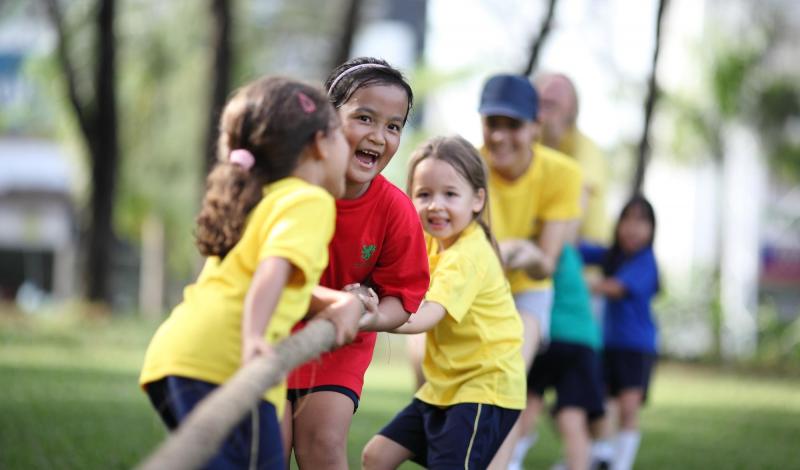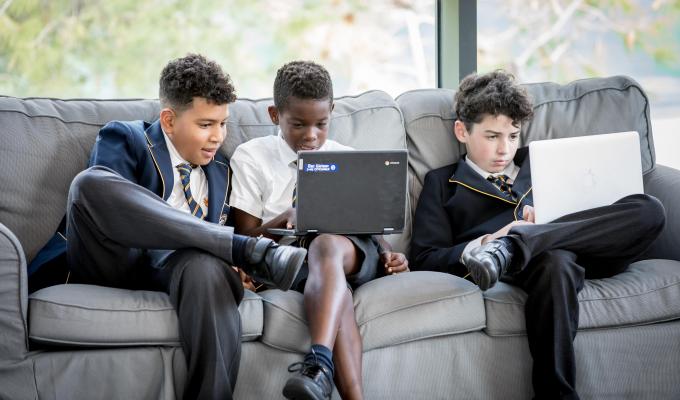Online Safety and Resilience
Technology and the internet has undoubtedly been the hero of current circumstances, providing an opportunity for everyone to stay connected and not least for enabling teaching and learning to continue. In all our lives, our use and reliance has increased significantly and young children have perhaps developed computing skills faster than ever before. Therefore it has never been more important for our community to ensure we are guiding, monitoring and protecting our young people to safely use online resources available to them.
Most parent guides about online safety provide strategies and software options that allow the adult to sanitise and/or restrict the more unsavoury, unsuitable and dangerous sections of the internet for their children. But there is another very important area to online safety that rarely gets the coverage it deserves; we are talking about ‘digital resilience’.
In his book ‘What works in building resilience?’, Tony Newman defines a resilient child as someone that “can resist adversity, cope with uncertainty and recover more successfully from traumatic events or episodes”. In the context of their digital lives, a resilient child would be one that can resist the temptation to browse unsuitable material when firewalls fall short, in combination with building relationships with suitable adults which allows them to talk to us and ask questions without judgement. This is surely what we should be striving for in our young peoples’ digital lives?
Furthermore, a large part of our childrens’ lives are now played out online using various social media platforms. The Office of the Children’s Commissioner, ‘Life in Likes’ report, found that:
- many Year 7 children find social media hard to manage, becoming over-dependent on ‘likes’ and ‘comments’ for social validation
- young people become increasingly anxious about online images and ‘keeping up appearances’ as they get older. This can get worse when they start to follow celebrities and grow significantly upon starting secondary school
- social media sites can undermine children’s view of themselves by making them feel inferior to the people they follow
- young people feel social pressure to be constantly connected at the expense of other activities – especially in secondary school where everyone has a phone and social media accounts
There was a time when this data would be surprising or shocking for parents to read but we believe those days have long gone. This generation of adults have countless hours scrolling through their own social media feeds, and have experienced the very same feelings of loneliness, low self-esteem and inferiority, and feelings of missing out. Luckily, we are old enough to have already developed a level of resilience that can help to quantify and balance the negative feelings that come hand-in-hand with this technology. Our young people need our support, open communication and, in lots of cases in regards to social media, our protection from becoming involved too early with these social media platforms. Educare.com states in their article ‘What is digital resilience?’ that "most parents can no longer claim to be ‘too old’ or ‘out of touch’ with social media and the online world. It is everyday life for children and young people, and adults don’t need to be tech-savvy to be able to discuss feelings, behaviour and consequences".
Finally, we would like to mention the modern dilemma facing so many young people today of ‘sharenting’. This is where parents feel completely free to post pictures of their children and even their children’s friends on their own social media platforms without the need for consent. There is an entire generation growing up who will reach adulthood with a huge digital footprint that they have had no control over whatsoever, potentially negatively impacting future employment opportunities and personal relationships. Before you hit that share button we would like to get everyone to ask themselves a question: if the shoe were on the other foot, would you want someone to put your photograph on the internet forever without asking your permission?




